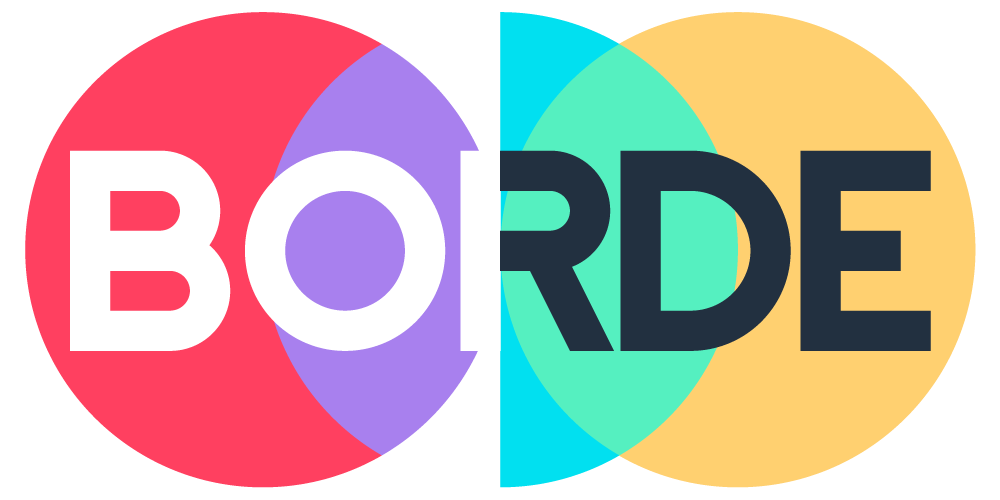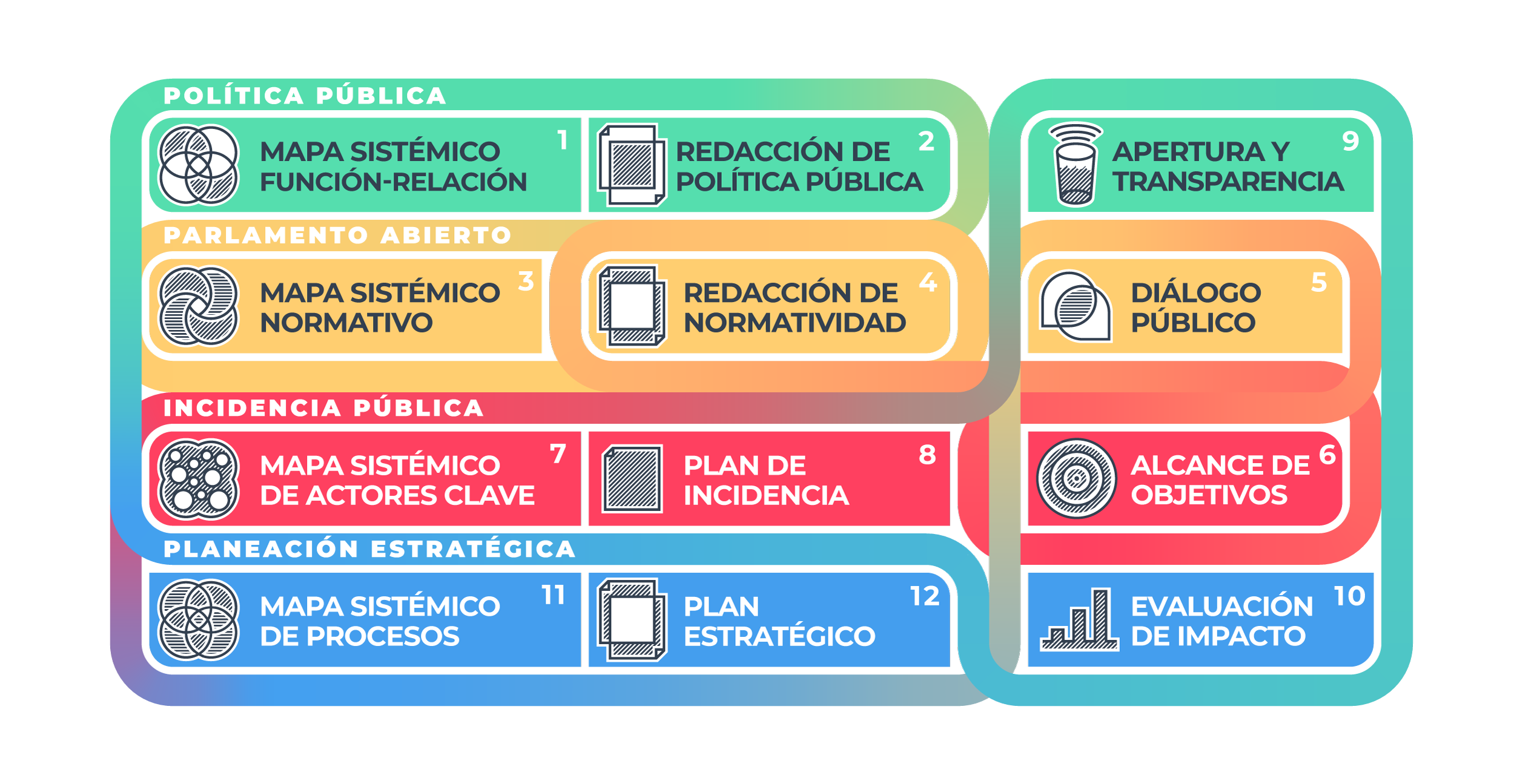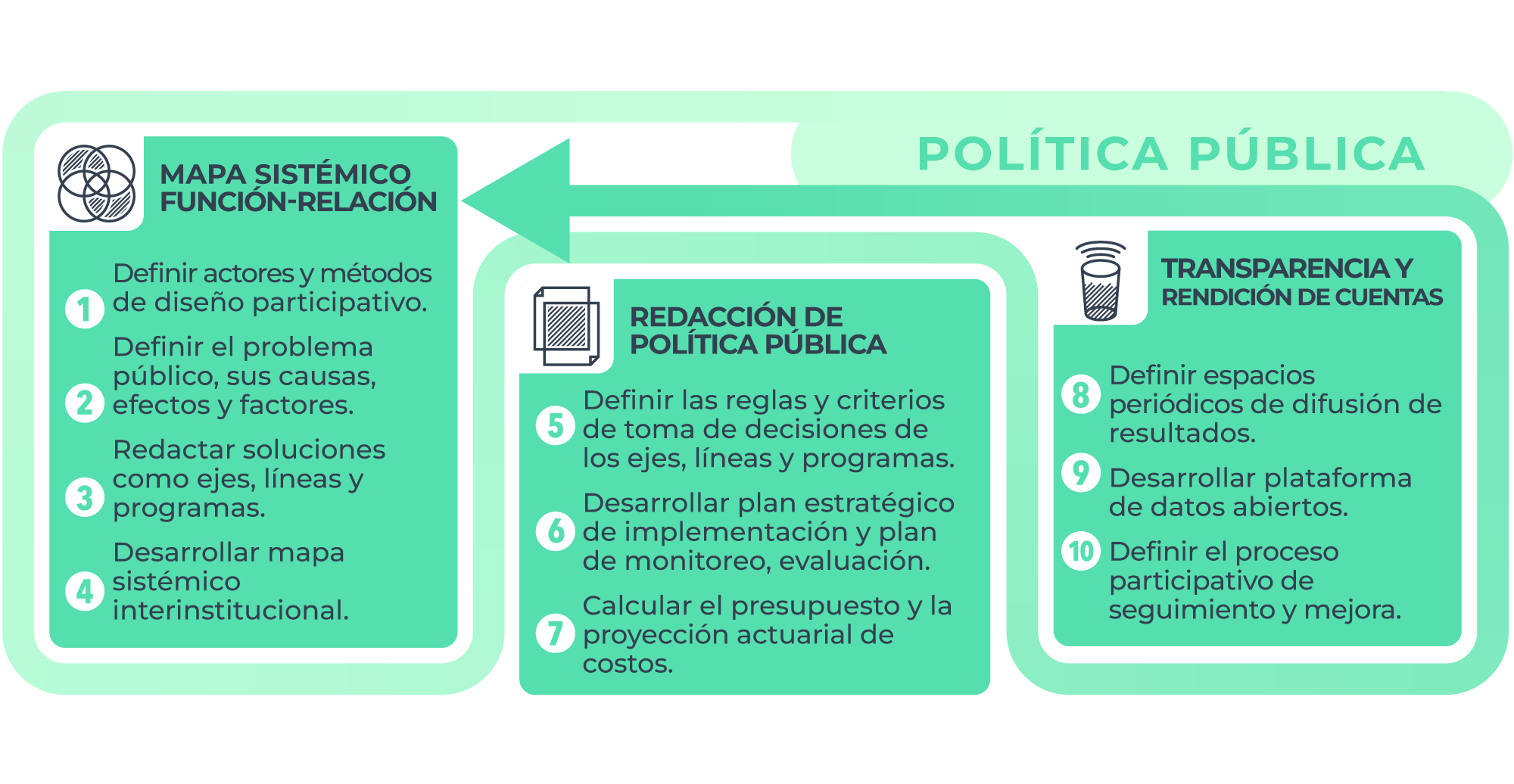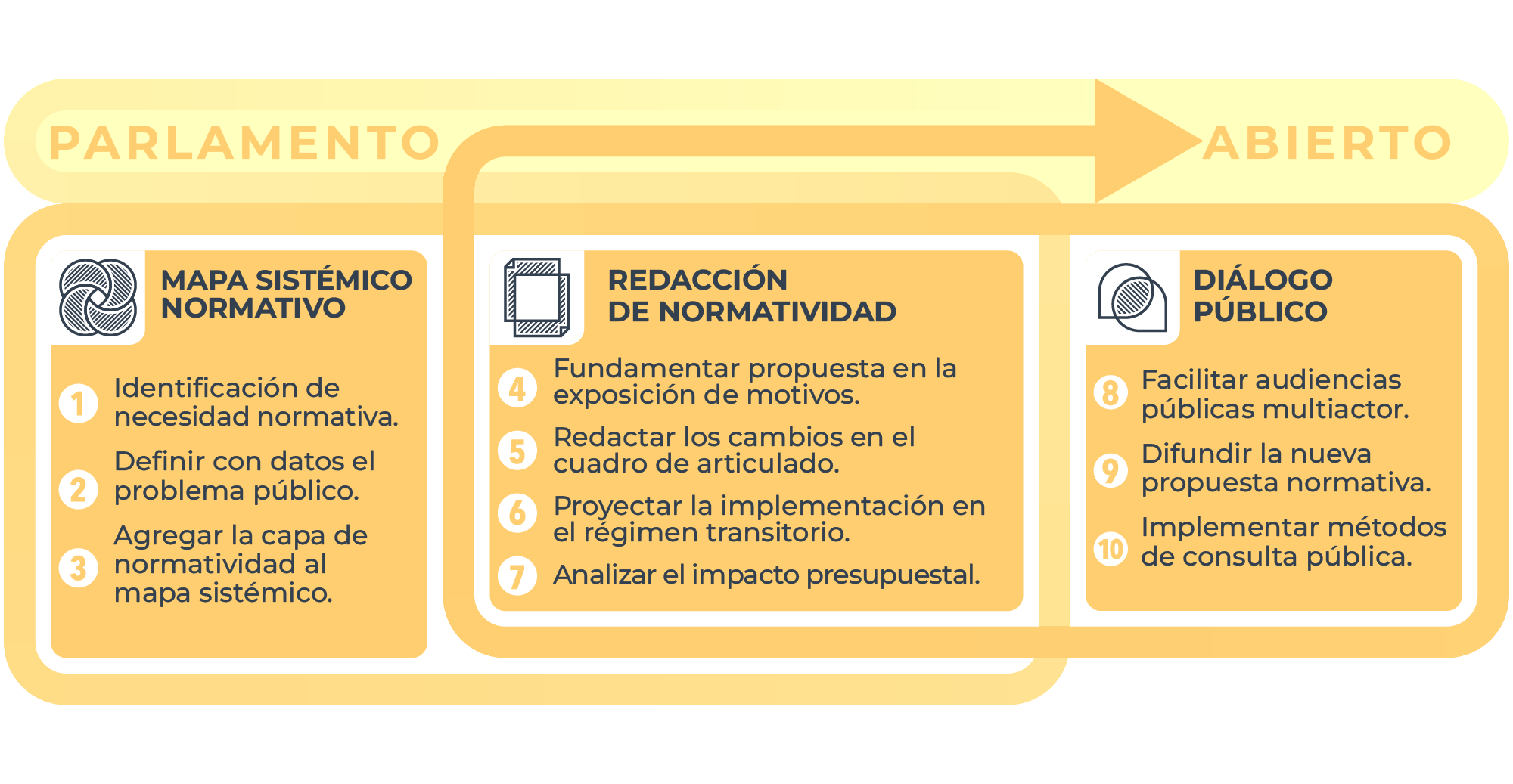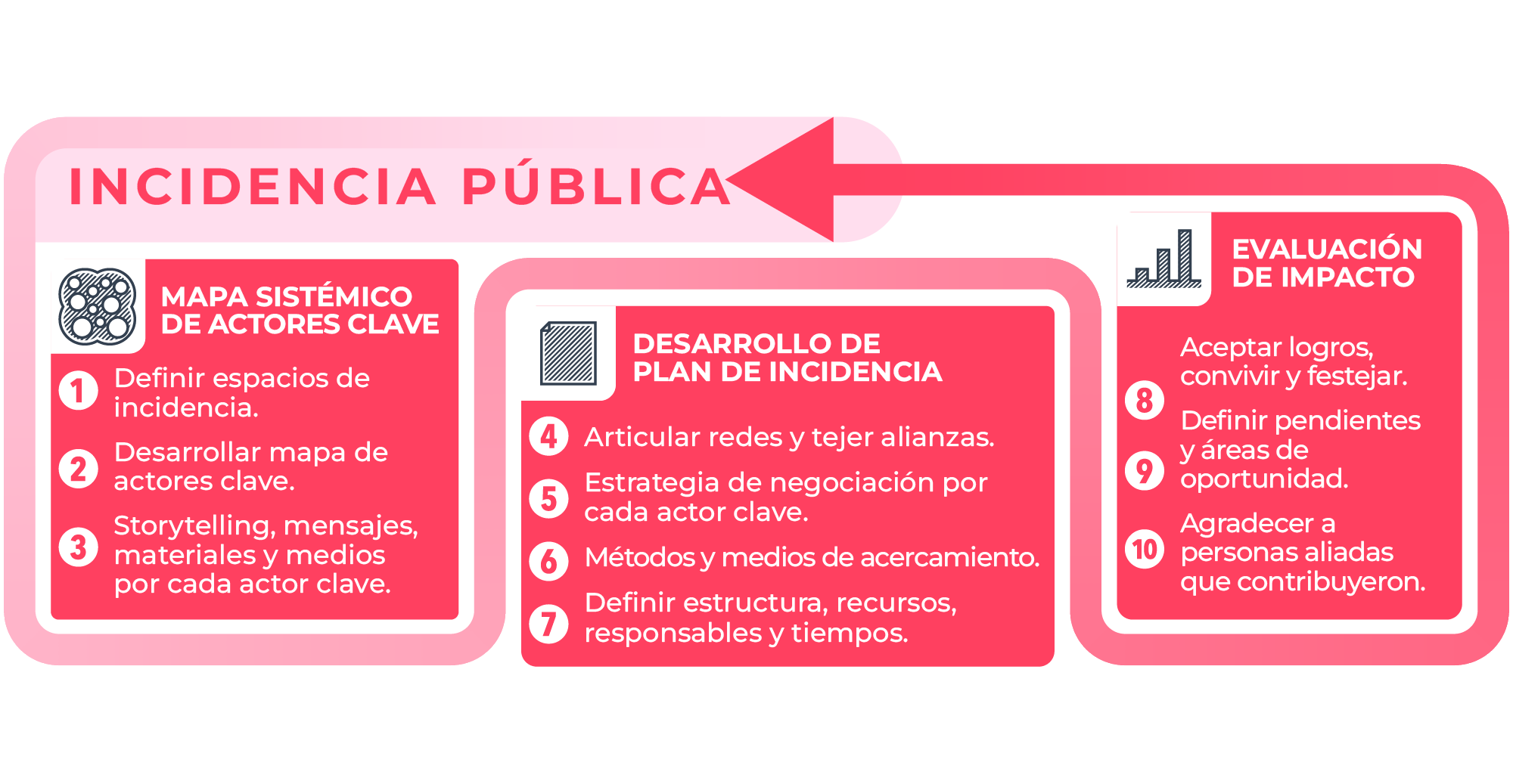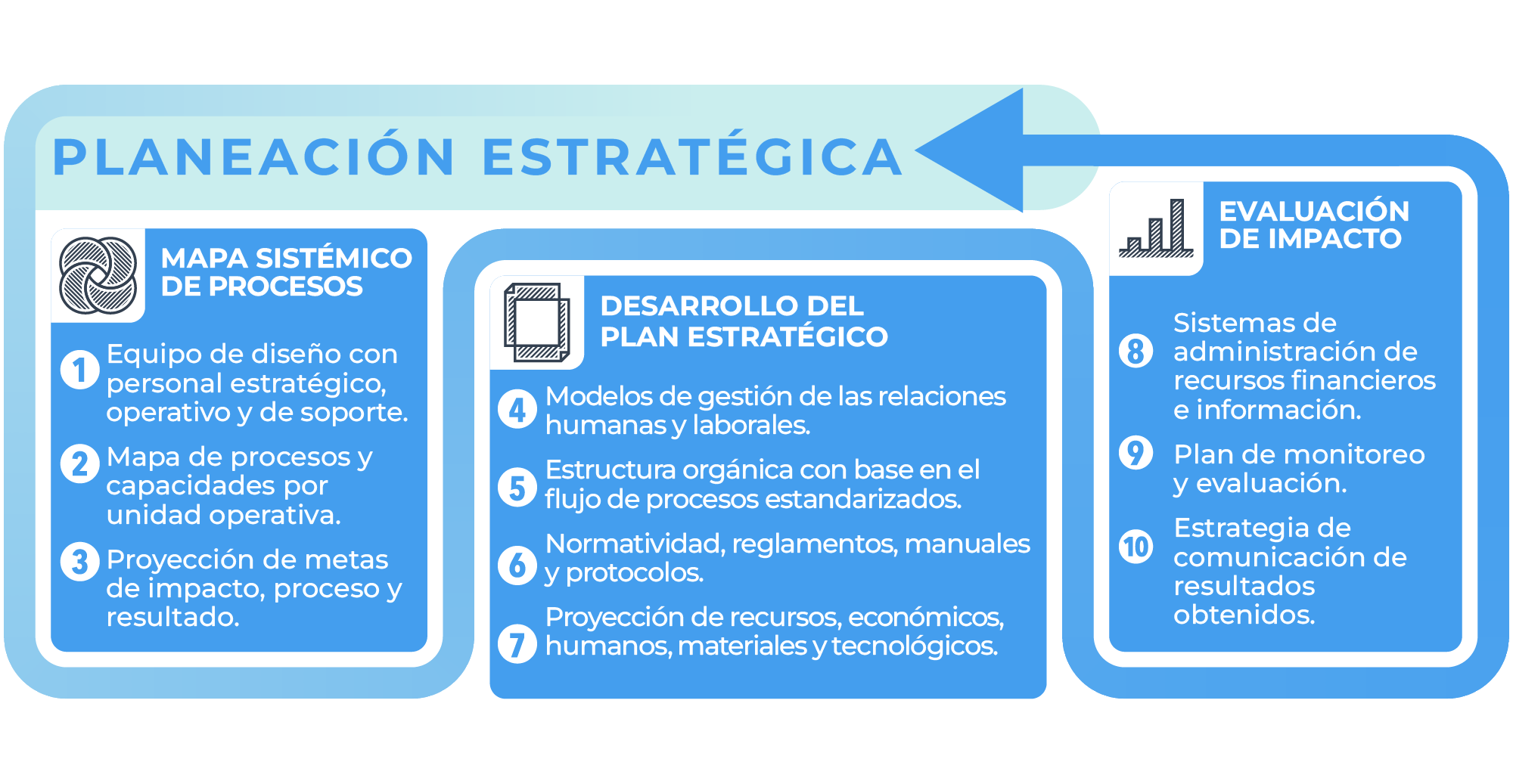The violence and impunity tool
The "Democracy washing" Machine

The mexican bomb
The phenomenon of democratic backsliding in Mexico is characterized by tree key strategies. First, there is a deliberate effort to maintain an illusion of democratic checks and balances, while simultaneously using violence as a tool for social control and final the government is deeply invested in sustaining a public image of triumph and popularity, achieved through media manipulation. Far from being random or improvisational, these tactics are elements of a systematic strategy. They aim to centralize power and subtly establish the foundation for the ‘new Mexican regime,’ all while avoiding the activation of widespread alarms.
The checks and balances illusion
- The Perfect Imbalance of Democracy: A political system designed to centralize power in the hands of a few, thus distributing gains among fewer individuals. The ruling party has implemented four strategies: passing low-quality legislative reforms that render institutions useless, cutting budgets and increasing functions, stagnation due to lack of leadership appointments, and appointing incapable heads to destabilize institutions from within. Systematically applied in various orders, this approach has been used in the dismantling of the general prosecutor’s office, the electoral institute, the transparency institute, the electoral tribunal, and the economic competition authority.
Deficiencies in the legislative process have been recurrent and glaring, prompting the Judiciary, particularly the Supreme Court, to overturn legislations due to procedural failures.This critical issue contributes to a narrative suggesting that the popular will is being compromised by “anti-democratic minorities and enemies of the people.” Such discourse extends to discrediting fundamental mechanisms of the political system in Mexico, including the separation of powers, transparency, accountability of political actors, and judicial independence.
Within this broader context, a legislative proposal emerged between 2022 and 2023, introducing significant controversy. The proposed reforms aimed at transforming the electoral processes in the country, raising concerns as they threatened the autonomy of the electoral judiciary and federal and local electoral bodies. Additionally, the proposal sought to drastically reduce the budget of electoral bodies and centralize all electoral processes, posing a risk to the effective functioning of the electoral system at all levels (federal, state, and municipal). Despite these critical observations, the proposal received approval from the parliamentary majority in the Federal Congress. In response, in February 2023, at the heart of Mexico City, thousands of Mexicans protested against the approved reforms. The central message of the protest emphasized urging the Supreme Court to defend the Constitution as a fundamental argument for safeguarding democracy. This demonstration unfolded in the Zócalo, the largest public square in Latin America, historically symbolic for gatherings of the President’s supporters and the ruling party. The significant citizen participation in the protest was highlighted, considered the most substantial opposition gathering since the beginning of López Obrador’s government, with estimates suggesting the involvement of nearly 100,000 people. Ultimately, the Congress’s violation of the constitutionally established procedure during the approval of the reforms led to their invalidation by the Supreme Court.
- Attacks against Judicial Independence: Legislative proposals have been publicly disclosed with the aim of replacing the entire operational structure of the Judiciary, especially altering the composition of the Supreme Court of Justice. At the same time, the government ignores international treaties and dismisses resolutions from human rights courts.
- A Retreat from Open Governance: There is a resurgence of a ‘provider’ state that dismisses citizen participation, lacks transparent procurement mechanisms, curtails economic competition, and neglects the imperative to document, measure, evaluate, and be accountable for its actions.
- Electoral Plan B: A Shift in Mexico’s Democracy”
- Initial Plan A: The intention was to amend the Constitution and related laws. However, due to the lack of majority for constitutional reform, the MORENA Parliamentary Group proposed an alternative package of laws, knowing some aspects might be unconstitutional.
- Electoral Plan B: Introduced in two parts, the first part, published on December 27, 2022, included amendments to the General Law of Social Communication and the General Law of Administrative Responsibilities.
- Supreme Court’s Intervention: The Mexican Supreme Court, led by Minister Alberto Pérez Dayán, suspended these reforms for violating the 90-day pre-election period rule for the electoral processes in Coahuila and the State of Mexico, which were set to begin on January 1, 2023.
- Reforms’ Implications: The reforms would allow government officials to influence elections under the guise of “freedom of expression” or “public function” during electoral campaigns, effectively opening the door to their involvement in the election process.
- Supreme Court’s Historic Session: The Court focused on the legislative process rather than the content of the reforms, setting constitutional minimums for legislative procedures and eliminating fast-track approvals in Congress.
- Constitutional Violations: The reforms were declared unconstitutional due to their fast-track approval without proper deliberation or understanding by legislators.
- Legal Advisory’s Stance: The Court’s decision was criticized for violating the principle of separation of powers, with ministers accused of legislating.
- Pending Resolution of Plan B’s Second Part: This involves reforms to four laws, published on March 2, 2023, which would reduce the powers of the National Electoral Institute (INE) in conducting and overseeing electoral processes.
- INE’s Diminished Role: The reforms entail significant cutbacks in INE’s responsibilities and personnel, risking the organization of elections and citizen participation mechanisms like Popular Consultation and Mandate Revocation.
- Political Monopoly and Electoral Violence: The increasing dominance of the majority party raises concerns about the potential emergence of a one-party system, wherein legislative and judicial powers may become subservient to the Executive. This troubling scenario is exacerbated by the current prevalence of electoral violence, with the 2018 electoral process in Mexico marked as the deadliest, witnessing 112 individuals killed and 774 attacks against politicians, along with 429 targeting non-elected officials unrelated to electoral processes. Furthermore, the 2021 electoral process recorded an unprecedented surge in aggressions against political figures. The majority party, having solidified its territorial influence within a mere decade, has exhibited consistent growth since 2014. In that year, just four years after its official registration as a political party, Morena secured victory in the presidential election and gubernatorial races in five states. As we approach the 2024 elections, there is anticipation that Morena may govern, either directly or indirectly, in 28 out of 32 entities, encompassing 97% of the Mexican population.
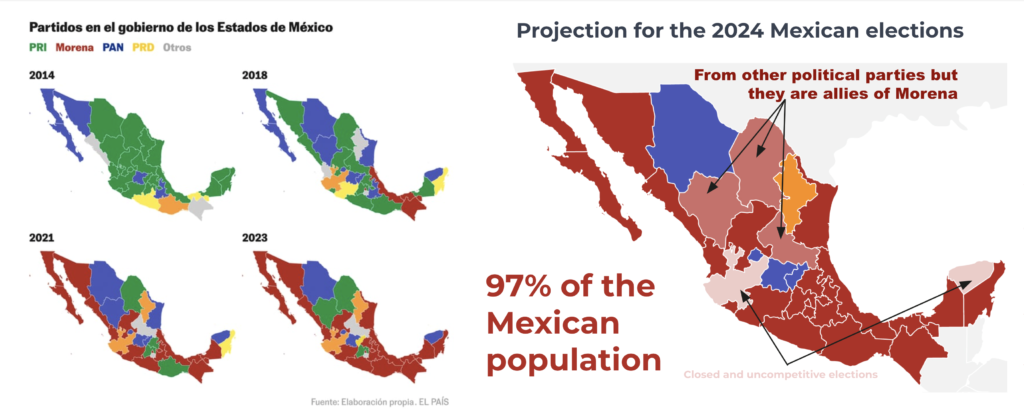
The war therapy of violence and impunity
- Lack of Investigative and Prosecutorial Capacity: In 2022, 17% of the population in Mexico were victims of a crime, but only 10% of these crimes were reported due to fear or mistrust of the authorities, leading to a staggering 96% impunity rate. Meanwhile, the perception of insecurity stands at 74.6%. Therefore, it’s not surprising that Mexico ranks 115th out of 140 countries and 37th out of 40 Latin American countries in the Global Rule of Law Index. As developed by Ponce (2019), violence and selective impunity become a tool for electoral competition, which translates into the assassination and intimidation of politicians with the aim of directly influencing state decision-making, endangering competition in violent municipalities by reducing the number of candidates (Ponce, 2019).
- Militarization and co-optation of the State by forces of organized crime: With a military led by figures accused of drug trafficking by the DEA, the institution has for 20 years to contain organized crime. During this time its support and collusion with various cartels has been documented. Mexico ranks as the third-highest country in organized crime rates globally, recording 38,422 homicides in 2023, with the most violent states being those in the U.S – Mexican border according to official data. In addition since 2015, drug-related crimes have increased by 149% in Mexico, despite the armed forces doubling their budget and personnel in the same period. Meanwhile, cartels have become the fifth-largest employer in Mexico. The Guacamaya leaks scandal exposes not only the corruption of military institutions, their persecution of NGOs and journalists but also their vulnerability and inability to resolve the national security crisis.
The democracy washing machine
- Closure of Civic Space: The year 2022 has been the most violent for the press, with 696 attacks against journalists meaning an increase of over 300% in 12 years. From December 2018 to September 2022, 141 human rights defenders and journalists were assassinated, with 99% of the murders in the current six-year term remaining unpunished. This is compounded by media and fiscal persecution against these groups and NGOs in general, with 2022 being the first year in which the number of registered NGOs decreased.
Education as a Mechanism of Indoctrination: Corrupt unions regain control of the educational system to the detriment of teaching quality. Additionally, the new curriculum (The New Mexican School) published in August 2023 aims at building “anti-neoliberal” Mexican nationalism with clear intentions of political propaganda for a “new regime”:- The significant increase in attacks against journalists and the unpunished assassination of human rights defenders in Mexico create a climate of fear and censorship. This suppression of critical voices and free press is a classic tactic in the ‘Democracy washing’ machine, as it portrays a facade of democratic freedom while systematically quashing dissent and controlling information flow.
- The decline in registered NGOs in 2022 underlines a strategic shrinking of civic space. This tactic in the ‘Democracy washing’ machine demonstrates a governmental effort to weaken civil society’s influence and oversight, presenting an illusion of a thriving democratic space while effectively limiting organized opposition and critical analysis.
- Media and fiscal persecution of journalists and NGOs not only undermines the pillars of a free society but also serves as a key cog in the ‘Democracy washing’ machine, creating an appearance of normalcy and legality while covertly dismantling democratic structures and silencing critical voices.
- Education as a Mechanism of Indoctrination: Corrupt unions regain control of the educational system to the detriment of teaching quality. Additionally, the new curriculum (The New Mexican School)published in August 2023 aims at building anti-neoliberal Mexican nationalism with clear intentions of political propaganda for the ‘mexican new regime’.
- The takeover of the educational system by corrupt unions, which compromises the quality of education, is a critical element in the ‘Democracy washing’ machine. It shows a governmental intent to control and manipulate the foundational phase of citizen development, masking indoctrination as education reform.
- The introduction of a new curriculum aimed at fostering ‘anti-neoliberal’ Mexican nationalism under the guise of educational reform is a subtle yet powerful tool in the ‘Democracy washing’ machine. It subtly shifts the ideological underpinnings of future generations under the pretext of modernization, while embedding political propaganda.
- The manipulation of education to propagate the ideals of the ‘Mexican new regime’ highlights the strategic use of indoctrination in the ‘Democracy washing’ machine. By controlling educational content, the regime shapes public opinion and societal values under a facade of educational development and progress.
- Economic Stagnation and Fiscal Deficit: In 2024, there is a plan to recover the marginal growth of 1.9% from 2018, but today we face a deficit of 5.3% of GDP, equivalent to 100 million dollars more than in 2018. Furthermore, the financial debt of state oil and electricity monopolies reaches 147 billion dollars, 12% of the GDP. A time bomb designed to explode and create a deep crisis during the next government period, ultimately declaring ‘the failure of the civilian sector’.
- The ongoing economic stagnation and rising fiscal deficit, despite promises of recovery, act as mechanisms in the ‘Democracy washing’ machine. They divert attention from democratic deficiencies by focusing public discourse on economic challenges, masking systemic governance failures.
- The immense financial debt of state monopolies not only threatens economic stability but also serves as a distraction in the ‘Democracy washing’ machine. It creates a crisis narrative that shifts public attention away from democratic erosion, under the pretext of economic urgency.
- The looming financial crisis, set to erupt in the next government period, can be seen as a deliberate setup in the ‘Democracy washing’ machine. It prepares the ground for declaring ‘the failure of the civilian sector’, thereby justifying increased authoritarian measures under the guise of economic rescue and stability.
- The Washing Mashing: This strategy glove practices that undermine fundamental democratic principles. Characterized by government corruption, irregularities in social program implementation, media manipulation, and the use of disinformation to sway public opinion, these tactics contribute to a distorted reality where autocracy masquerades as democracy. Five proven facts:
- Corruption in Segalmex: Segalmex, established to ensure Mexico’s food self-sufficiency, faces significant corruption allegations. This includes 69 complaints involving a misappropriation of approximately $593.75 million, implicating former public officials and companies.
- Irregularities in Social Programs: Mexico’s Federal Audit Office (ASF) has identified irregularities in government social programs like “Sembrando Vida” and Senior Citizen Pensions, including duplicated deposits and payments to deceased individuals.
- Issues with the Secretary of Agriculture and Rural Development (Sader): The ASF discovered irregularities amounting to around $162,500 in Sader-managed programs, coupled with a lack of proper documentation to verify the identities of beneficiaries in payments totaling approximately $5.73 million.
- Media Manipulation and Disinformation: A reported decrease in public investment in traditional media coincides with increased spending on digital media and bot farms, employed to spread disinformation and manipulate public opinion.
- Diversion of Funds in SEDENA: From 2013 to 2019, Mexico’s Defense Ministry (SEDENA) used ghost companies to divert approximately $148.19 million, using false invoices to justify expenditures on army supplies and services.
These facts reveal a concerning reality in Mexico, where democracy is being eroded by covert autocratic practices. Institutional corruption, manipulation of social programs, and the spread of disinformation are tactics weakening the foundations of a robust democracy. As reported by Artículo 19, the decline in public investment in traditional media and its alignment with the government is alarming. Moreover, the massive investment in disinformation on social networks and bot farms, highlighted by sources like Red Borland and Signalab, further exacerbates this issue. Additionally, the “rey del cash” scheme, involving the diversion of public funds to mobilize supporters or demobilize detractors in cash transactions to avoid detection, is particularly concerning. This situation poses serious challenges to maintaining the rule of law and fostering genuine, transparent, and participatory democracy in the country. Recognizing and addressing these issues are crucial steps to counter the influence of the “democracy washing machine” and strengthen democratic institutions in Mexico.
References:
World Justice Project. (2023). Índice de Estado de Derecho en México, https://worldjusticeproject.mx/indice-de-estado-de-derecho-en-mexico/
Senado de la República. (2018, 08 de octubre). Asesinatos políticos en el periodo electoral 2018, https://bibliodigitalibd.senado.gob.mx/bitstream/handle/123456789/4154/CI_52.pdf?sequence=1&isAllowed=y.
Senado de la República. (2021). El proceso electoral del 2021 registró la mayor cantidad de agresiones a personajes políticos, https://comunicacionsocial.senado.gob.mx/informacion/comunicados/676-el-proceso-electoral-del-2021-registro-la-mayor-cantidad-de-agresiones-a-personajes-politicos.
Corte Interamericana de Derechos Humanos. (2023). México es responsable por violar la libertad personal y la presunción de inocencia por la aplicación del arraigo y de la prisión preventiva oficiosa, https://www.corteidh.or.cr/docs/comunicados/cp_25_2023.pdf
Mexicanos contra la corrupción y la impunidad. (2023). Sin otros datos. El legado de la política de transparencia de AMLO y el abandono de la información pública, https://contralacorrupcion.mx/sin-otros-datos-el-legado-de-la-politica-de-transparencia-de-amlo-y-el-abandono-de-la-informacion-publica/
Instituto Nacional de Estadística y Geografía. (2023). Encuesta Nacional de Victimización y Percepción sobre Seguridad Pública, https://www.inegi.org.mx/programas/envipe/2023/
Global Initiative Against Transnational Organized Crime. (2023). Criminality in Mexico, https://ocindex.net/country/mexico
Secretariado Ejecutivo del Sistema Nacional de Seguridad Pública. (2023). Incidencia Delictiva Nacional. Mapa Acumulado Anual, https://www.gob.mx/sesnsp/acciones-y-programas/incidencia-delictiva-299891?state=published
Department of Political Science and International Relations, University of San Diego. (2020). Organized Crime and Violence in Mexico. 2020 Special Report, https://justiceinmexico.org/wp-content/uploads/2020/07/OCVM-2020.pdf
El País. (2023, 20 de septiembre). El narco es el quinto empleador de México. https://elpais.com/mexico/2023-09-22/el-narco-es-el-quinto-empleador-de-mexico.html#:~:text=El%20narco%20es%20el%20quinto%20empleador%20de%20M%C3%A9xico%2C%20con%20entre,el%20reclutamiento%20de%20nuevos%20miembros.
How to disarm it?
Addressing Mexico’s democratic challenges demands strategic interventions across governance structures. Focused efforts on institutional reinforcement, legal transparency, and civic engagement are pivotal in reviving democratic health and restoring public confidence in governmental systems.
Committing to democratic strengthening:
- Balance of Powers and Open Government: It is crucial to maintain the separation and balance of powers to ensure a healthy democratic process. This involves establishing checks and balances to prevent the concentration of power (OECD, 2020).
- Promoting Open Parliament Processes: Transparency in the legislative process is vital. An open parliament allows for public scrutiny and participation, which enhances the quality of democracy (Inter-Parliamentary Union, 2021).
- Advancing Public Policy in the Judiciary for Transparency and Accountability: The judiciary must operate transparently and be held accountable to strengthen its independence and public trust (United Nations, 2021).
- Strengthening Autonomous Electoral and Transparency Bodies: Independent electoral and transparency bodies are key to fair elections and open governance (Transparency International, 2020).
Reinforcing the democratic rule of law:
- Promoting Schemes for Civil Security and Justice: Effective civil security and justice systems are fundamental to maintaining order and protecting rights while respecting the rule of law (World Justice Project, 2021).
- Professionalizing Investigation and Criminal Prosecution: Enhancing the capacity and integrity of law enforcement and prosecution services is crucial to reducing impunity and ensuring justice (United Nations Office on Drugs and Crime, 2020).
Participatory decision-making processes:
- Funding Systems for the Press and Civil Society: Supporting independent media and civil society organizations financially is essential for a free press and an active civil society, which are pillars of a healthy democracy (Freedom House, 2021).
- Standardized Public Management Systems: Implementing standardized management systems in public administration can improve efficiency, transparency, and accountability (World Bank, 2021).
References:
- OECD. (2020). Checks and Balances in Democratic Governments.
- Inter-Parliamentary Union. (2021). Guidelines for Open Parliament.
- United Nations. (2021). Judiciary Independence Principles.
- Transparency International. (2020). Global Corruption Report: Politics.
- World Justice Project. (2021). Rule of Law Index.
- United Nations Office on Drugs and Crime. (2020). Global Report on Crime and Justice.
- Freedom House. (2021). Freedom of the Press Report.
- World Bank. (2021). World Development Report: Governance and the Law.

To mitigate the crisis, it’s vital to strengthen checks and balances, ensure government transparency and accountability, and nurture an active civil society and independent press. International support, integrating democracy into trade and human rights agreements, is key. Critical steps include professionalizing security and justice authorities with ethical standards, creating stable, merit-based public sector careers, and encouraging citizen participation in policy-making. Finally, countering the ‘democratic washing machine’ in media, through media literacy and bolstering independent journalism, is essential for preserving democratic integrity.
What do we do in BORDE?
We execute strategic interventions aimed at bolstering democratic institutions, refining methodological frameworks, and fostering robust civic participation. Our approach is designed to stabilize social, economic, and political landscapes, effectively reducing criminal activities, alleviating migration and humanitarian crises, and diminishing the rise in violence.
Collaboration with public institutions
- BORDE plays a pivotal role in facilitating participatory drafting processes for legislative reforms, public policies, and strategic planning. This collaborative approach is crucial, as highlighted by Smith (2020), who emphasizes the importance of involving a diverse range of stakeholders in policy development. By engaging civil society, experts, and affected communities, BORDE ensures that policies, especially in sectors like security, criminal justice, and democratic institutions, are comprehensive and reflective of various perspectives (Johnson & Green, 2019).
- The focus on key sectors such as security and criminal justice is deliberate, as these areas are critical to national stability and public welfare. According to Brown (2021), involving citizens and relevant groups in policy-making enhances the effectiveness, transparency, and public trust in these institutions. BORDE’s approach aligns with this, aiming to create a more inclusive and trustworthy governance environment.
Strengthening civic society
- BORDE leverages technology platforms to evaluate political representation. These platforms, as observed by Thompson (2020), enable citizens to monitor and assess the performance of elected officials, fostering a culture of accountability and informed decision-making. Additionally, these tools play a vital role in facilitating participation and access to justice services, empowering individuals to actively engage with the legal and political systems (Davis & Clark, 2021).
- BORDE’s participation in Open Parliament participatory processes is a testament to its commitment to enhancing legislative transparency and inclusivity. This involvement is in line with the principles outlined by Williams (2019), who argues for the need for legislative processes to be more transparent, inclusive, and responsive to public needs. Through these efforts, BORDE contributes significantly to policy development that resonates with the interests and needs of the broader community.
- In conclusion, BORDE’s initiatives are centered on fostering collaboration between public institutions and civil society, using technology to enhance political accountability, and contributing to more transparent and inclusive legislative processes (Miller, 2020). These efforts are crucial in building a robust democratic framework that is participatory, accountable, and responsive to the needs of the people.
References:
- Brown, A. (2021). The Role of Citizen Participation in Strengthening Democratic Institutions.
- Journal of Political Studies, 34(2), 45-59. Davis, L., & Clark, S. (2021). The Impact of Digital Tools on Accessing Justice Services and Political Participation.
- Technology and Society Journal, 12(3), 112-128. Johnson, R., & Green, T. (2019). Stakeholder Engagement in Policy Development: Challenges and Opportunities.
- Policy Review, 28(4), 77-89. Miller, J. (2020). Fostering Collaboration Between Public Institutions and Civil Society. Governance Today, 15(1), 20-30. Smith, K. (2020).
- Participatory Policy Making: The Need for Diverse Voices. Public Policy Quarterly, 16(2), 88-97. Thompson, R. (2020).
- Evaluating Political Representation in the Digital Age. Democracy and Technology Journal, 14(1), 34-45. Williams, J. (2019).
- Open Parliament: Towards More Transparent Legislative Processes. Legislative Studies Quarterly, 21(3), 300-315.
Think Tank .gob
Open Sate
Open parliament
Open justice
